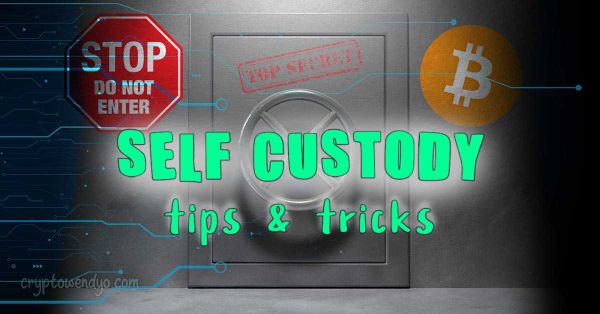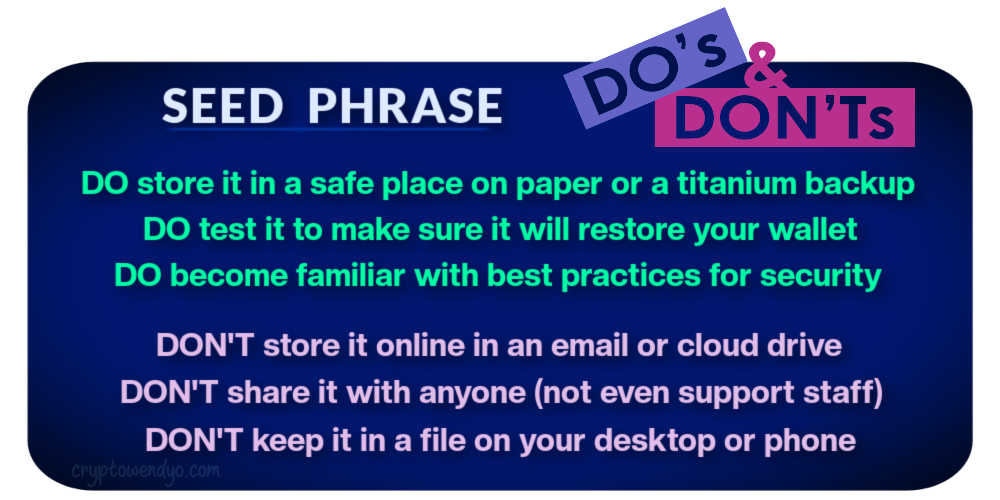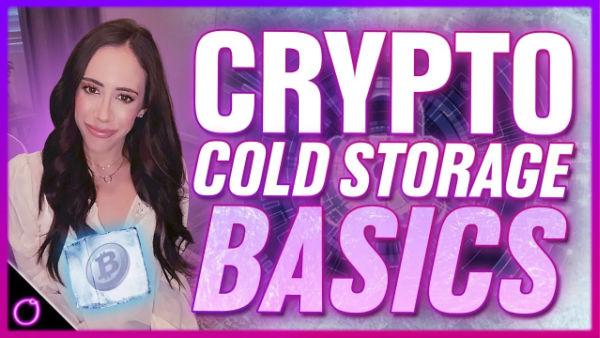


Hi, folks. Sherpa here. If you’ll remember my previous article on self-custody from July, I argued that the biggest risk is and always has been trusting your financial future to a centralized third party.
After the events of the last few weeks with FTX and others breaching trust in a myriad of unsavory ways, I felt like it might be the perfect time to directly address self-custody and why it is so important.
There are two main reasons why self-custody is important.
The first is security. When you trust a third party to hold your cryptocurrency, you’re putting your security in their hands. And as we’ve seen time and time again, centralized exchanges are not secure custodians.
The second reason is control. When you entrust your cryptocurrency to a third party, you’re giving up control of your own money. You’re at the mercy of their terms and conditions, their customer service, and their financial stability.
Whether it’s backdoor deals & terrible financial decisions at FTX, data leaks from Binance, hacks at Bitfinex, or the next big cataclysmic event at the next exchange that was “Too Big to Fail”: the best way to stay safe is to keep your funds in your own custody.
I find it somewhat ironic that more than a decade in, we’re still making the same mistakes that satoshi set out to solve.
Again, the problem is in trusting third party middlemen. “Be your own bank” involves a lot of inherent risks, but that responsibility is the price of financial sovereignty.
If we want cryptocurrency to fulfill its promise as a trustless, decentralized financial system, we need to start by taking responsibility for our own funds.
As so many users begin moving their assets off of centralized exchanges and into their own custody, there are some things to be aware of, and some simple mistakes you can make if you’re not careful.

The more you own, the more you should be partitioning assets & mitigating risk. If all of your assets are in metamask & it gets compromised? You’re rekt. Even hardware wallets present inherent risks, so the best method overall (in my opinion) is partitioning.
Example: Let’s say you’re only holding Ethereum. Maybe you split it into three or four ‘stacks’.
However you decide to handle your self-custody, I strongly suggest that you at least consider it. I don’t mind using a centralized exchange on occasion. I do not keep funds there. I don’t mind using a centralized platform or service on occasion. I do not keep funds there.
We learn these lessons either in moments of inspiration or moments of desperation. I watched Cryptopia’s discord & how their admins handled situations in 2017, and I started warning people that “Craptopia” was going down sooner or later. That was our “FTX”.
They might change up the tune or the chorus from time to time, but the song remains the same. Until next week…research more; trust less.
WATCH VIDEO


Torrent/seedbox aficionado, decentralist, cultural archivist, fundamental analyst, podcast addict, shitcoin-sifter extraordinaire
Tip Jar
BTC: bc1qahxrp47hpguhx8y8r382dekgca34tlv54aufht
Doge: DJRy9gGSUGeyXfVcZXzKLkBv7RmDLv3MhJ
Share This Article
Join 10,000+ forward thinkers! Get crypto education in your inbox.